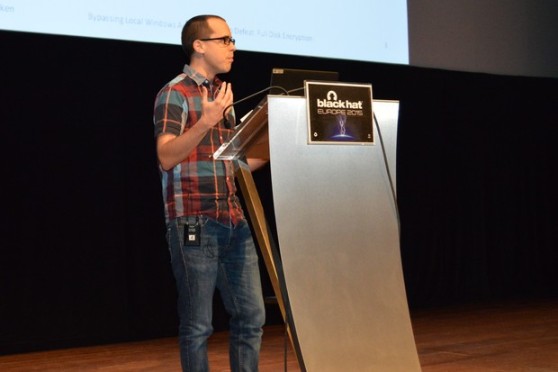Organizations depending on Microsoft BitLocker to scramble the drives of their workers’ PCs ought to introduce the most recent Windows fixes instantly.
Ian Haken, a specialist with programming security testing firm Synopsys, showed the security Friday in Amsterdam at the Black Hat Europe security gathering.
When space construct confirmation is utilized concerning Windows, the client’s secret key is checked against a PC that serves as an area controller.
A scientist uncovered an unimportant Windows validation detour, altered recently, that puts information on BitLocker-scrambled drives in danger.
Be that as it may, in circumstances when, for instance, a portable PC is taken outside of the system, and the area controller can’t be come to, confirmation depends on a neighborhood accreditations store on the machine.
The issue influences Windows PCs, a piece of space, a typical setup on big business systems.
Microsoft BitLocker Put security Risk For Employee
Keeping in mind the end goal to keep an assailant from uniting a stolen, lost or unattended portable workstation to an alternate system and making a caricature area controller that acknowledges another secret key to open it.
This extra check doesn’t happen when the controller can’t come because the convention designers expected that the aggressor couldn’t change the client watchword put away in the neighborhood reserve.
Signing in while associated with the rebel area controller would even now fall flat because the controller does not have the machine’s secret word.
The confirmation convention additionally checks that the machine is enlisted on the space controller utilizing a different machine secret key.
He then makes the same client account on the controller as on the portable PC and makes a secret key for it with a creation date far previously. In the first place, the aggressor sets up a fake space controller with the same name as the one the tablet should unite with.
On the other hand, Haken made sense of an approach to do it; it just takes a few moments if automated. The assailant can then make another secret key on the tablet, supplanting the first one in the neighborhood accreditations cache.
The scientist said this is a rationale defect that has been in the verification convention since Windows 2000. Be that as it may, physical access did not use to be a piece of the Windows danger model because, in such a circumstance, an aggressor could boot from an option source, similar to a live Linux CD, to access the information at any rate.
When verification endeavors with the assailant’s secret word on the portable workstation, the area controller will illuminate Windows that the watchword has lapsed. The client will naturally be incited to change it.
On the other hand, the assailant could detach the portable PC from the system with a specific end goal to compel a fallback to neighborhood verification, which will now succeed because just the client’s secret word is checked against the reserve.
